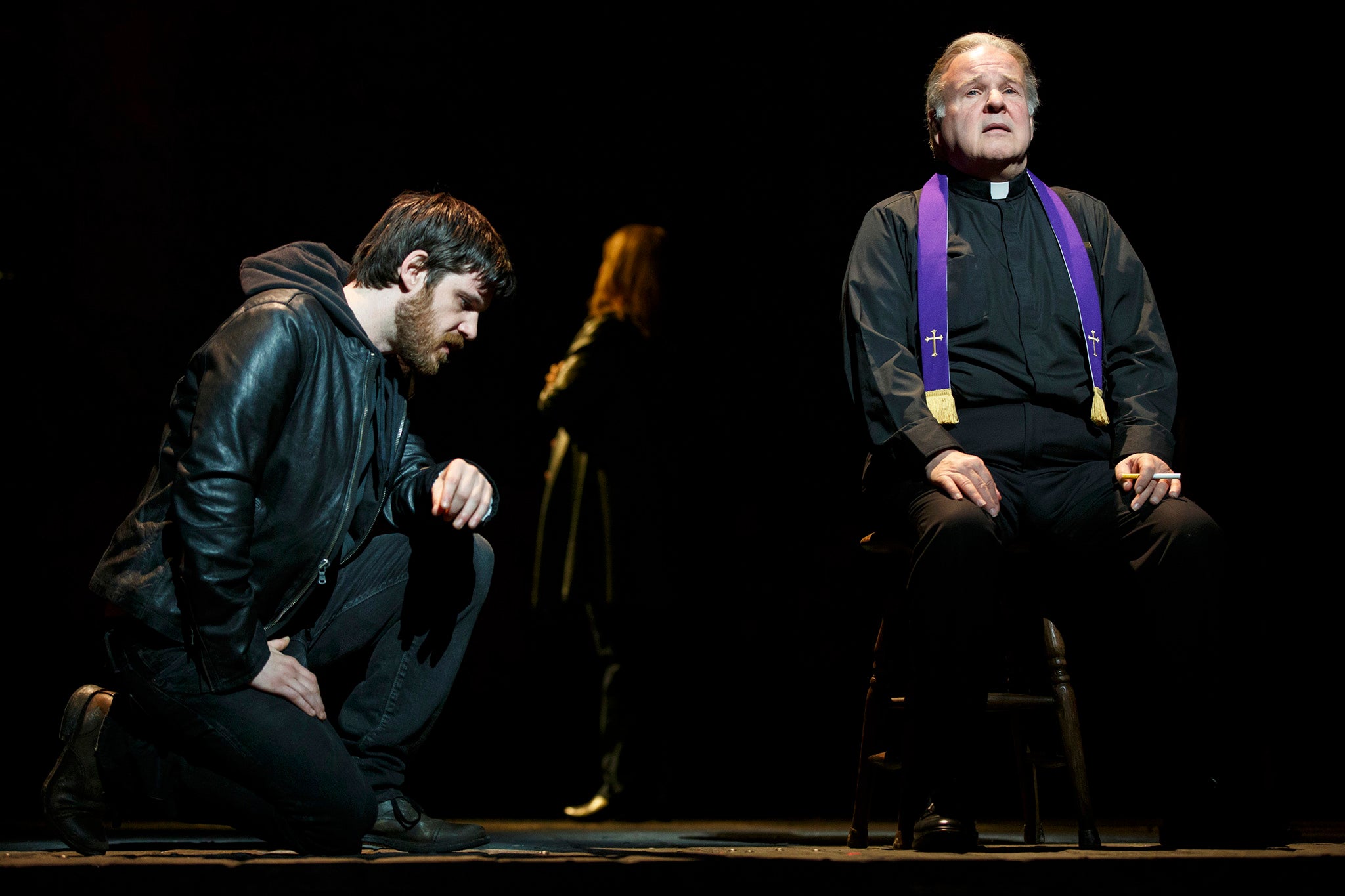The Last Ship, Broadway, review: Sting's shipbuilding show is imperfect, but the fault does not lie in the music
Jimmy Nail stars in the musical at the Neil Simon Theatre, New York

In the programme for The Last Ship, a new Broadway musical which has been scored by Sting, the former Police frontman notes he is “drawing upon his memories of the shipbuilding community where he was born and raised”. Sting has been too successful with this objective. The displaced shipbuilders in Wallsend pulsate with emotion and vitality but the community spirit can’t hide the lack of creativity in the show’s story.
Playing a character loosely modeled on Sting, Gideon Fletcher (Michael Epser) leaves the North-East, turning his back on the dying shipbuilding industry, his violent father and girlfriend Meg (Rachel Tucker). Fifteen years later the prodigal son returns, finds out he fathered a boy with Meg just before he left and joins the shipbuilders’ crusade to build one final ship, seemingly for old times’ sake. The cast are uniformly excellent with superb supporting turns from Jimmy Nail, who has never been more endearing as shipyard foreman Jackie White, and Sally Ann Triplett as his wife Peggy.
If as much attention had been paid to ‘What Happens Next?’ as the ‘We’re All in the Same Boat’ ethos that the cast evokes, The Last Ship would be a surefire hit. Instead its fate is uncertain on the choppy waters of The Great White Way. The fault certainly does not lie in the music. Though Sting has previously been more lyrically sophisticated (did the writer of Englishman in New York and Fields of Gold really come up with “Oh I canna be missing, the lads’ll expect me/ Why else would the good Lord himself resurrect me?”), songs such as “We’ve Got Now’t Else” and “Dead Man’s Boots” are up there with the best tunes to be heard on Broadway.
The principal message of The Last Ship is the importance of going back to your roots but how I wish John Logan and Brian Yorkey, the writers of the book, had exhaustively gone back to their story. Sting might have waited most of his life to write the songs for The Last Ship but the cliché-ridden, predictable and depthless book makes one wonder if Logan and Yorkey penned the book over lunch at a swift in-and-out Manhattan eaterie, not a lengthy meal on Newcastle’s Quayside.
Against the backdrop of David Zinn’s shimmering set, the ship that closes the show is impressive, typical of Joe Mantello’s assured direction. But the technical accomplishment plasters over key plot holes. Why beyond nostalgic platitudes about sticking together are the shipbuilders so keen on returning to what has been lost? Where is this ship going? We never get answers and it doesn’t help that the key villain is market forces since Meg’s boyfriend Arthur (Aaron Lazar), who had wanted to scupper the shipbuilders, turns to be alright after all.
The stirring cast and expert choreography from Steven Hoggett, ensures you never want to bolt The Last Ship despite it never resolving its lack of narrative direction. A lacklustre book previously capsized the musicals of Sting’s fellow North-Eastern pop stars Neil Tennant and Dave Stewart, in the form of Closer to Heaven and Ghost, and for the mooted West End crossing of The Last Ship, Sting might wish to cast his mind back to Message in a Bottle and start ‘sending out an SOS’.
Join our commenting forum
Join thought-provoking conversations, follow other Independent readers and see their replies
Comments